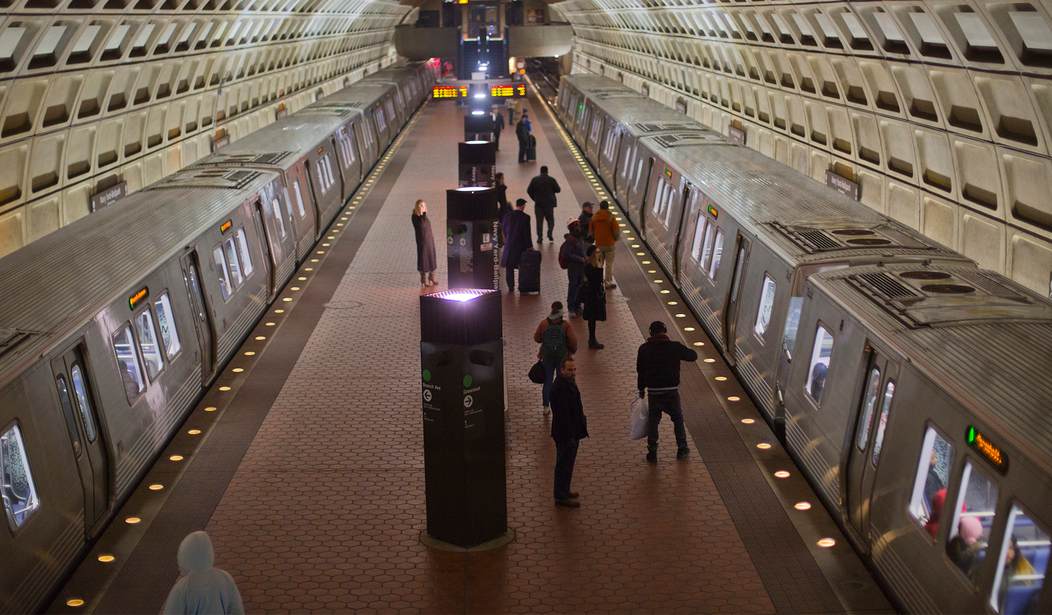Back in July a challenge was filed, Angelo v. District of Columbia, against the District because of their ban on carry on the DC Metro. The four plaintiffs are Gregory T. Angelo, Tyler Yzaguirre, Robert M. Miller, and Cameron M. Erickson, who are represented by George L. Lyon, Jr and Matthew J. Bergstrom. At the time of filing, Yzaguirre best summed up the case in his statement to me about it, “Wake up my fellow metro riders! This isn’t about me wanting to be the hero. This is about me wanting to exercise one of our most basic Constitutional rights as Americans, the right to defend myself. I ride the metro almost every day, and I refuse to be a victim.” The Second Amendment Foundation (SAF) shares some of those sentiments and on November 2nd filed an amicus brief in solidarity of Angelo.
The Second Amendment Foundation today filed an amicus brief in support of a District of Columbia resident’s motion for a preliminary injunction against the city’s ban on carrying handguns within its public transportation system. The case is known as Angelo v. District of Columbia.
“The District of Columbia’s ban on the carrying of handguns within its public transportation system (the ‘Metro ban’) is flatly unconstitutional under the plain text of the Second Amendment and binding case law,” writes attorney and SAF Executive Director Adam Kraut. The brief was filed in U.S. District Court for the District of Columbia.
District residents Gregory Angelo, Robert Miller, Cameron Erickson, and Tyler Yzaguirre are seeking a preliminary injunction and summary judgment to prevent the city from further enforcement of the ban. The District maintains that metro transportation, which includes buses and the subway system, falls within the definition of “sensitive places” where firearms can be prohibited, simply because they are often crowded, transport federal employees, and they are used by school students to go to and from schools. Kraut’s brief says this argument “misses the mark.”
“Even if this Court were to accept that schools are in fact a ‘sensitive place’,” Kraut says in his brief, “it cannot logically follow to extend the meaning well beyond the schoolhouse walls. To do so, in this context, would render an entire transit system utilized by thousands of other people at all hours of the day a sensitive place simply because children take it to and from school twice a day for limited periods of time.”
Cam recently covered some of the Metro ban case. In his coverage he observed that the District has been “firing blanks” when it came to defending their law, with the District claiming “the four gun owners in question don’t even have standing to sue…” Cam’s further statements are echoed and shared by the brief in spirit.
I’ll admit my bias here, but to me the issue is pretty simple: if the Second Amendment protects the right to bear arms in public for the purpose of self-defense, then that right must be intact on public transportation. Otherwise, how else are those who rely on buses and trains to get around supposed to ever be able to lawfully exercise their right to bear arms? For District officials, of course, the answer is “they’re not,” and while that might be their ideal outcome it would fly in the face of what the Supreme Court has said about our right to carry, and I’m encouraged not only by the strong arguments presented by the plaintiffs in this case, but by the decidedly weak arguments offered in defense of the carry ban on the part of the District of Columbia.
It’s this type of political nonsense and games that the law abiding gun owners of DC has to deal with, nevermind the rest of the anti-freedom caucus states such as New York, New Jersey, et.al. Both of the aforementioned either have or are seeking to have limitations on carry while traveling via different modes of transportation, public or private.
Alan Gottlieb, the Executive Vice President and founder of the SAF, pointed out the similarities of living in a post-NYSRPA v. Bruen world and post-Heller, “As it has done since trying to defend its ban on handguns during the Heller challenge 14 years ago, the District is literally grasping at straws in an effort to keep its citizens disarmed. That runs counter to the very fabric of our Second Amendment, especially following the Supreme Court ruling in Bruen.”
These infringements, as pointed out by Adam Kraut, do amount to a near blanket ban, going in direct opposition to prior rulings, “The District can’t be allowed to prevent thousands of people from exercising their right simply because the city isn’t able to set up a dedicated form of transportation for school students. To consider public transportation a ‘sensitive place’ would open Pandora’s Box, enabling the District to restore, in a de facto sense, the very ban struck down by the Supreme Court back in 2008.”
I reached out to George Lyons, one of the attorneys representing the challengers to this unconstitutional ban, and he’s grateful for the support. Lyons expressed his gratitude to me in stating, “I thank SAF for its support and their professional and persuasive brief.”
The DC Metro ban is much bigger than just the inhabitants and those who work in the District. This kind of prohibition has and is going to continue to be parroted by gun-grabbers across the country. Cutting the head off this snake early is important, and thankfully we have organizations such as the Second Amendment Foundation either directly challenging unconstitutional laws, or supporting those that are in the form of amicus briefs. Hopefully this conflict ends up on the express line, as whatever case law Lyons manages to cause to inflict is liable to be on the side of liberty.







Join the conversation as a VIP Member